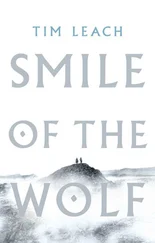A hand upon his shoulder – Lucius, not Arite. For he saw that she had turned away already, back towards where Tomyris waited, kicking a crow from a corpse as she went.
‘At least she still lives,’ said Lucius.
‘Yes,’ Kai answered. ‘And now there is but one warband out there that wishes me dead, rather than two.’
For the rest of the day they rode faster than they should have, pushing on into twilight and leaving their horses weary and gasping before they fell from the saddle, hoping to be tired enough to fall into a dreamless sleep. But it was no use. In the darkness before sleep and in the shifting landscape of his dreams, like one in a fever, he saw the same visions over and over again.
It would have meant nothing to Laimei – she had that warrior’s gift granted to one in a hundred, where killing brought only stillness, and peace. It was the others he saw in his dreams. Tamura, hands shaking as she lowered the knife to the scalp of a man pleading for his life, making the clumsy torturer’s cuts. Saratos, his careless smile washed from his face by blood, turning his deaf ear towards the screaming captive on the ground. All of the riders he had led from the river and across the plain, the lost, the faithful, and the innocent, being fashioned into murderers.
*
In the following days, as they travelled back towards the river, they could feel that the Sarmatians were close. Everywhere, there were signs of the great army that was gathering once more. Fires on the horizon, shadows moving across the plain, the great furrows of herd and warband carved across the earth.
A single patrol would have been enough to undo them, for them to be hunted as deserters, remnants of a broken clan. But always the shadows moved on, the fires remained distant. Whether it was luck or fate, they could not say. Perhaps a dark blessing granted by the butchered warband, for the slow death was said to give a message to the gods – perhaps Laimei had wished for that, as she put those men to knife and fire.
Soon enough, they heard the whisper of water calling to them – the great wide water of the Danu, the river at the edge of the world. Kai and the others tied their horses at the last patch of cover, crawled to the river edge like supplicants before an altar. Passing through the reeds until they reached the bank, to look upon the death of their people.
Great machines of war lined up along the banks, the ballistae and catapults that could rain fire and tear a warband to pieces from a thousand feet away. The countless warriors of the Legion, armoured in iron and bearing their great red shields, the eagles high above them all, their watchful golden gods of war. And in the water, the host of narrow, flat-hulled ships that would bring that death across the water.
Kai looked on it for as long as he could, the old fear biting at his throat, until he pressed his face into the mud, so he would not have to see it any more.
They beat up and down the riverbank for half a day, until they found a trader – a little hawk-faced man, his boat loaded down with trinkets of east and west. Half mad at least: when he saw them he snatched up some charm from his wares and cursed them in a mix of half a dozen languages. Lucius spoke to him in the Roman tongue, the words of a conqueror, and he grew calm at once. And after a little bargaining (the trader looking on Tomyris with hungry eyes, but settling for a silver-patterned scabbard), they were upon the water.
When it had been stilled by ice in the winter, it had been a battleground, a place for heroes to do the work of horse and spear. Now it was a border between worlds, a burial ground. The water flowed dark beneath them, yet within it Kai almost thought he could see the hands of the vengeful dead reaching up, fleshless lips calling him a traitor and a coward. For he had lived when they had died, his cowardice proved in every breath that he took, each beating of his heart.
Close to the other bank, and the alarm calls were sounding, archers and spearmen gathering at the bank, calling for watch words and pass signs that none of them knew. There was almost nothing of Rome left in Lucius after the long winter, for he was heavy-bearded and clad in the furs and leathers of the Sarmatians. The trader cursed and shrieked for mercy. The arrowheads glinted in the low light of the sun.
Words in the air, not arrows – the words of Rome, spoken by Lucius. Not the pass words that the Legion called for, but the brawling, quarrelling, loving words of a brother in arms, until one of the Legionaries, a dark-skinned, heavy-set man, seemed to recognise him. Lucius’s name was spoken, hesitantly at first, then like a chant or a prayer, taken up by one man after another. For they too must have left their dead in the river, lost friends beyond it, hoped for an impossible moment such as this, to see their dead live once more.
Swept into the arms of his people, saluted by some, clasped close by others. Those warriors of Rome, the blank-faced killers, seeming as men for a moment. Until they had finished greeting their lost companion, and looked upon the prize Lucius had brought with him. Kai, Tomyris, and Arite.
A quiet, then, as the Romans came forward. Slow steps, their hands slack at their sides, moving like sleepwalkers. Kai thought to see their faces marked with greed or envy, for he had heard it was the making of a soldier’s fortune to sell such a bounty in flesh. Or for them to be swearing bloody vengeance, come to revenge themselves upon the barbarians from over the water. He had been prepared for anything but this still, dull quiet.
Lucius was speaking – hesitant and stammering, calling them back, trying to remember what it was to command. But the Romans did not listen.
And Kai felt the fear rising further and further into madness, for this was a face of Rome he had not seen before. Not the watchers of the border, those who killed with weary, empty efficiency. This was the Rome that Bahadur had spoken of, the Rome without mercy.
The red crests and cloaks, the short, murderous swords, the gold eagles high above them. That maddening terror swept over him once more, every mark of Rome like a cut into his mind. Voices calling to him, but he could not hear them. The world tipping up, turning to grey, and then to black.
‘Lucius Artorius Castus.’ A smile across the Legate’s face as he spoke, as though he looked upon a prize bull, a horse of his that had raced well in the games. ‘Welcome back.’
Half a beat of the heart for Lucius to remember that it was his name being spoken. To hear his full name, spoken by a Roman, was to hear the words of a dream, a voice from another world. It was only when the Legate’s smile twitched impatiently that he remembered to answer.
‘Thank you, sir. I serve the Emperor.’
The Legate, Caius Cassius Volesenus, inclined his head in response – perhaps a silent reminder of who else Lucius was sworn to serve. For all about them in the Legate’s tent were the trappings of glory and power. The red-trimmed senator’s toga, folded neatly but placed openly on top of a locked chest. A Crown of Valour prominently displayed, earned many decades past for storming a barbarian palisade on the banks of the Rhenus. A new slave, a Sarmatian child trembling as he held the wine and waited for commands in a language he could not understand. For Lucius – standing at attention in borrowed armour, his hair quickly and roughly cropped back – it was difficult not to feel more a beggar than a returning hero.
The last time they had spoken was when Lucius had volunteered to lead the raid across the river. A brief audience, where Caius had sat and fidgeted, ill at ease with the paternal duty demanded of him. For that was what was expected, when you sent a soldier to die. And now once more, Caius greeted him with a smile and the offer of wine. A greyhaired man growing a little stout about the waist, his beard cut in mimicry of the Emperor. Not the worst of commanders – one of those idiot sons of a senator who would throw away a Legion on a whim, or a bitter drunkard who, considering himself underpromoted and overlooked, would soak himself in wine while his Legion rotted beneath him. But even so, he was a man who was seeking to forget what it was to be a soldier.
Читать дальше
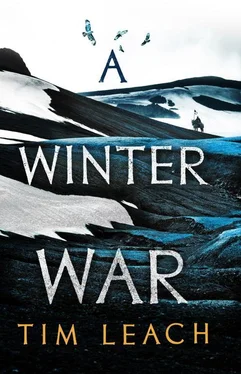
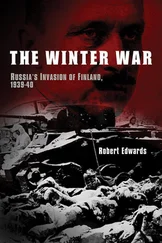

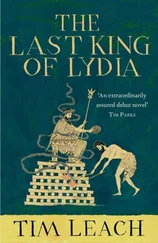
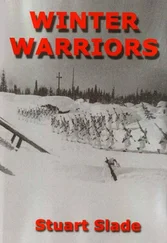
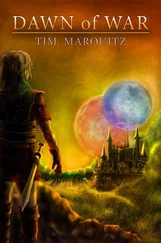

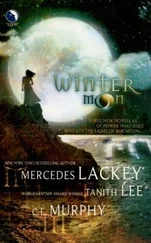
![Стюарт Слейд - Воины зимы [Winter Warriors ru]](/books/401383/styuart-slejd-voiny-zimy-winter-warriors-ru-thumb.webp)
